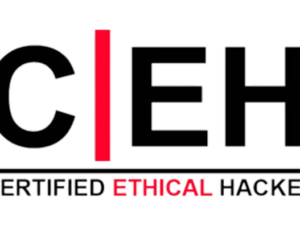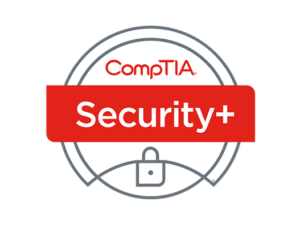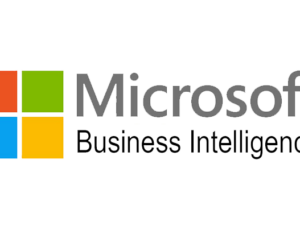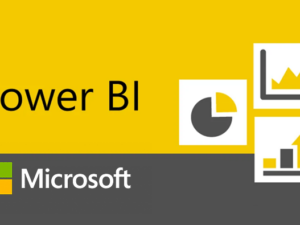Agile Certified Practitioner certificate by Project Management Institute (PMI-ACP)® is one of the most sought-after credentials globally in IT industry in the area of Project Management. The PMI-ACP certification recognizes an individual’s expertise in using agile practices in their projects while demonstrating their increased professional versatility through agile tools and techniques. To earn the Agile certification, professionals need to clear the PMI-ACP exam conducted by PMI®.
PMI® Agile Certified Practitioner Training
- Description
- Curriculum
- FAQ
- Reviews

Certs Learning’s instructor-led, online Agile Practitioner program is designed to help aspiring professionals earn Agile Certification (PMI-ACP)® and empower the current & future project managers to demonstrate their level of professionalism in agile principles, practices, tools and techniques. This course is taught by trainers who have years of experience in training and who have been practicing Agile Project Management with some of the top IT organizations.
On completion of the PMI-ACP® course learner will be able to:
- Help participants clear the PMI-ACP® exam in the first attempt while completing the required 21 contact hour’s training
- Understand Agile principles and practices that will enhance team productivity and improve customer satisfaction
- Gain insights on how to establish transparency in communication within the team and with customers
- Experience the freedom on embracing change and explain ways to manage the project’s scope, schedule and budget to help timely delivery of products
- Build trust with their teams and customers through consistent cadence of “common sense” best practices
- Acquire valuable insights on how the teams can “empower and inspire”
- Familiarize oneself with latest industry knowledge on how to manage dynamic projects in the most competitive environments
- Evaluate one’s exam preparedness and create a personalized plan for self-study.
- Instil confidence to manage projects of various sizes
This Agile Certified Practitioner training course is designed for anyone who is considering the use of an Agile Project Management methodology for software development. In general, practitioners who are seeking to: Understand Agile principles, Agile practices, Agile tools and techniques, including Project Managers, Program Managers, Analysts, Developers, Testers, IT Managers/Directors, Software Engineers, Software Architects, Software Managers, Testing Managers, Team Leaders and Customers.
1. General project management experience of 2000 hours on project teams earned within the last 5 years (Active PMP® or PgMP® will satisfy this requirement).
2. 1500 hours of working with Agile project teams and Agile methodologies within the last 3 years.
3. 21 contact hours of education on Agile practices.
-
1Introduction to PMI-ACP
Learning Objectives: At the end of this module you will learn all about PMI-ACP exam which includes; latest exam content, Eligibility criteria, Application process and fees structure and other relevant knowledge required to appear and pass the exam.
Topics: Following is the list of topics to be covered in this module-
- About PMI & ACP
- ACP Exam & Eligibility
- PMI-ACP Application Process Overview
- The Seven Domains and their overview
- The weightage of questions in the seven domains
- Tools & Techniques
- Knowledge & Skills
-
2Agile Principles and Mindset
Learning Objectives: At the end of this module you will learn the required knowledge of Agile Principles, Manifesto, its fundamental values and different methodologies to practice agile thinking.
Topics: Following is the list of topics to be covered in this module -
- 9 Tasks
- Why Agile
- Agile Manifesto
- Agile Principles
- Agile Methodologies, Frameworks and processes
- Agile Leadership
-
3Value Driven Delivery
Learning Objectives: At the end of this module you will learn the tools and techniques of maximizing business value through prioritization, incremental delivery, adjusting risks and frequent testing and feedback. You will also learn the various low-tech high touch tools used in an agile project. You will also learn the concept of Agile contracting and the various types of contracts prevalent for agile projects.
Topics: Following is the list of topics to be covered in this module -
- 14 Tasks
- Agile Value Proposition
- Frequent and Incremental Delivery
- Value Assessment & Economic models
- EVM for Agile Projects
- Little’s law
- Prioritization
- Minimal Marketable Product
- Factor Risk Reduction efforts into Product Backlog
- Frequent Verification and Validation
- Agile Tools
- Agile Contracting
-
4Stakeholder Engagement
Learning Objectives: At the end of this module you will learn the benefits of engaging stakeholders in the project. You will also learn how to establish a shared vision, various collaboration techniques, effective communication and interpersonal skills.
Topics: Following is the list of topics to be covered in this module -
- 9 Tasks
- Identify and engage empowered business stakeholders
- Share project information frequently and throughout the project with stakeholders
- Ensure stakeholder’s involvement through working agreements
- Agile Chartering
- Agile Modelling
- Manage Stakeholder’s Expectation through shared vision, shared understanding of success criteria, transparency on project status and forecasting.
- Communication & Knowledge Sharing
- Collaboration
-
5Team Performance
Learning Objectives: At the end of this module you will learn all about a high performing agile team. This includes Agile Roles, Team Rules, Generalized Specialists, Team space, Technical and interpersonal skills, Team development, mentoring and coaching, Team Performance measurement, Team empowerment and emerging leadership.
Topics: Following is the list of topics to be covered in this module -
- 9 Tasks
- Agile Team Roles
- Building an Agile Team
- Characteristics of High-Performing Team
- Cockburn’s Skill Mastery Model (Shu-Ha-Ri)
- Dreyfus Skill Acquisition Model
- Tuckman’s Team Formation Model
- Team Motivation
- Empowerment and Emerging Leadership
- Training, Coaching & Mentoring
- Collaborative Team Space
- Communication and Knowledge Sharing
- Team Performance Metrics
-
6Adaptive Planning
Learning Objectives: At the end of this module you will learn the Agile multi-level planning process, Sizing and Estimation, Tools & Techniques, Progressive Elaboration, Rolling Wave Planning, User Stories, Time Boxing and other agile concepts related to adaptive planning.
Topics: Following is the list of topics to be covered in this module -
- 10 Tasks
- Agile vs Predictive planning
- Principles of Agile planning process
- Progressive Elaboration & Rolling Wave Planning
- Value based analysis and decomposition
- User Stories
- Product Backlog
- Timeboxing
- Agile Sizing & Estimation
- Tools & Techniques
- Multi-Level Planning (High Level, Release, Iteration)
-
7Problem Detection
Learning Objectives: At the end of this module you will learn the agile practice to identify, resolve and prevent issues and threats early in the project and throughout the project. You will also learn the concepts of cost of change, escaped defects, Technical Debt, Cycle Time & Lead time, Risk-adjusted backlog and Risk burndown graph.
Topics: Following is the list of topics to be covered in this module -
- 5 Tasks
- Problems and their impact on Project
- Create Open & Safe Environment
- Agile Metrics (Lead Time, Cycle time, Throughput, Productivity, Defect Rate)
- Problem Detection
- Problem Solving
- Risk Management Life Cycle
- Tools & Techniques
-
8Continuous Improvement (Product, Process, People)
Learning Objectives: At the end of this module you will learn how the Agile team focuses on continuous improvement on the product, processes as well as the team through process analysis and tailoring, feedbacks, reviews and retrospectives. You will also learn the PMI Codes of ethics and Professional Conducts expected from you as an Agile practitioner.
Topics: Following is the list of topics to be covered in this module -
- 6 Tasks
- Continuous Improvement - Process
- Process Analysis
- Value Stream Mapping
- Continuous Improvement – Product
- Product Review & Feedback
- Continuous Improvement – People
- Retrospectives
- Tools & Techniques
- PMI’s Code ethics and Professional Conduct
-
9Exam Tips and Related Readings
Learning Objectives: This is a specially designed module, which will help you to understand the PMI-ACP Exam question patterns and the tips to address them. We will also guide you with a study plan, which you may follow to pass your exam. It will also contain a list of materials and online links, which you may refer for further reading to enhance your knowledge and skills.
Topics: Following is the list of topics to be covered in this module -
- Exam Question patterns
- Study Plan
- Exam Tips
- Related Readings.
View the recorded session of the class available in your LMS.
You can attend the missed session, in any other live batch."
(One PDU is equal to one hour involved in professional development or learning activity related to project management)







